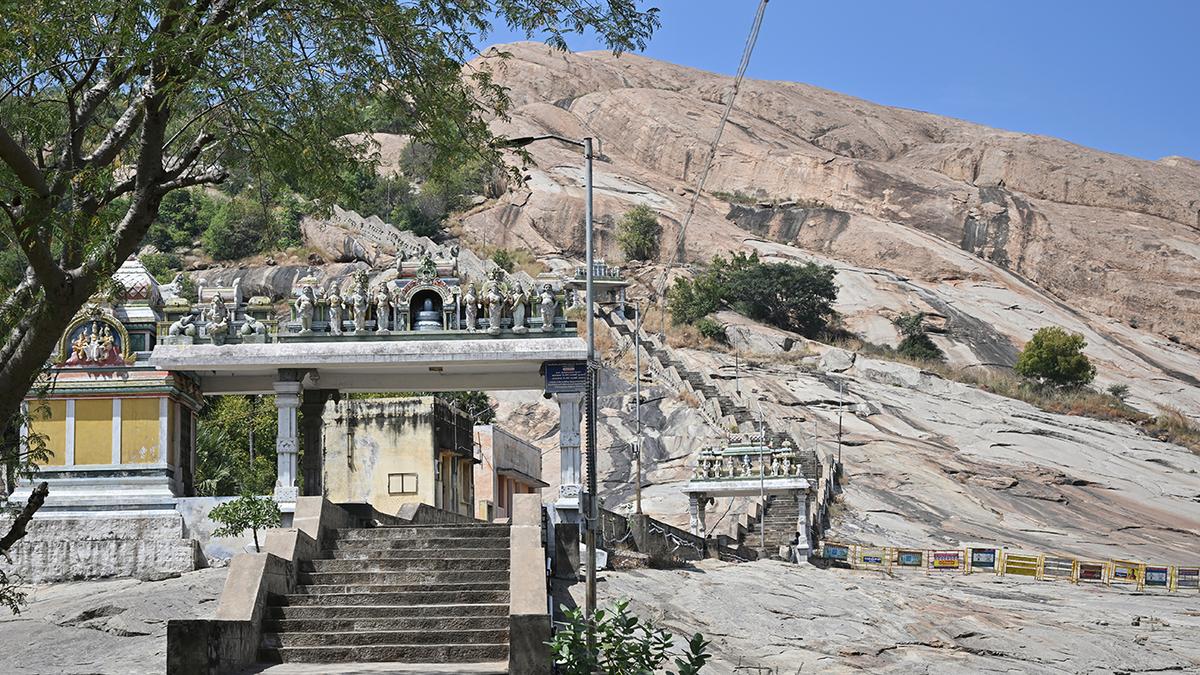 |
|
The recent events surrounding the Tirupparankundram hillock in Madurai, India, have exposed a critical failure of the district administration and law enforcement agencies. The mishandling of a seemingly minor dispute over religious practices escalated into significant communal tension, sparking widespread condemnation from political leaders and raising serious questions about the state government's commitment to religious harmony and the rule of law. The controversy centers on the Sikkander Dargah, a Muslim shrine located on the hillock, and the perceived interference by authorities in long-standing religious practices at the site. The core issue appears to revolve around the performance of ‘kandoori,’ a traditional Muslim ritual, which sparked a response from Hindu groups leading to protests and counter-protests. The escalation highlights a systemic problem: the lack of proactive and sensitive engagement from the authorities to prevent the escalation of a local dispute into a larger communal conflict.
Madurai MP Su. Venkatesan sharply criticized the district administration's vague statement attributing the controversy to a dispute over worship rights. He pointed out that court rulings had settled such disputes years ago, yet the administration’s actions suggested a lack of awareness or deliberate disregard for established legal frameworks. The MP further questioned the police's intervention in the kandoori practice, highlighting its inappropriate intrusion into a civil matter. He also condemned the Revenue Department’s involvement, arguing that their actions inflamed rather than eased the situation. Venkatesan's statement underscores a profound lack of understanding within the administration regarding the cultural and religious sensitivities involved. The fact that a long-standing tradition was suddenly viewed as problematic is a testament to the failure to properly consult local communities and engage with diverse cultural practices.
Nellai Mubarak, State president of the Socialist Democratic Party of India (SDPI), echoed similar concerns, directly blaming the State Government for fostering an environment conducive to communal conflict. He accused the government of enabling the “hate politics” of the Sangh Parivar by its handling of the Sikkander Dargah issue, highlighting the administration's failure to uphold the constitutional right to religious freedom for its citizens. Mubarak's critique is particularly relevant in light of the Places of Worship (Special Provisions) Act, 1991, which seeks to maintain the religious character of places of worship as it existed in 1947. The government's failure to actively implement this Act, seemingly by denying Muslims the right to worship at the Dargah, raises serious questions about its commitment to equality and non-discrimination.
The actions of the Tirupparankundram Inspector of Police, who prevented a Muslim man from performing the kandoori, further fueled the controversy. This action, coupled with the intervention of the Tirumangalam Revenue Divisional Officer and the Commissioner of Police, transformed a civil matter into a law and order issue. The authorities’ heavy-handed approach, far from de-escalating the situation, aggravated tensions and contributed to the escalation of the conflict. The accusations against these officials raise critical questions regarding accountability and the need for training in conflict resolution and intercultural sensitivity within the police and administrative forces. The lack of proactive measures to quell escalating rhetoric, particularly the failure to address “hate speech” at Hindu Munnani protest meetings despite court orders, further highlights a systemic failure in response to this evolving crisis.
Madurai Collector M. S. Sangeetha offered a different perspective, stating that the administration intervened only after political and religious leaders attempted to enter Tirupparankundram, indicating a reactive rather than a proactive approach. Her explanation suggests a lack of early warning systems or strategies to prevent the escalation of such disputes. While she claims that the kandoori practice’s long history was confirmed during a peace meeting, this response seems inadequate, suggesting a failure to understand the sensitivity of the matter and engage in preventative diplomacy. The contradictory accounts offered by the administration, coupled with the accusations of mishandling, highlight the crucial need for comprehensive internal investigations and systemic reforms to ensure that such incidents are prevented and effectively managed in the future. The narrative illustrates a deeper issue: a lack of understanding and empathy for diverse religious practices within the administration, resulting in ill-considered actions that directly contributed to communal disharmony.
A senior police officer’s justification for the Inspector of Police’s actions – the prevention of individuals carrying goats to the Dargah due to an existing complaint about a digital board – illustrates a fundamental misunderstanding of the religious significance of kandoori and further underscores the need for sensitivity training within law enforcement. This response demonstrates a failure to distinguish between legitimate religious practices and potentially disruptive actions. The case underscores a crucial need for improved interfaith dialogue, community engagement, and targeted training for law enforcement and administrative officials to ensure a more nuanced and effective response to similar events in the future. A thorough investigation is essential to pinpoint individual responsibilities and implement systemic changes to address the underlying causes and prevent future occurrences of this nature. The event serves as a sobering reminder of the importance of proactive governance, sensitive law enforcement, and an unwavering commitment to upholding the constitutional right to religious freedom for all citizens.
Source: Madurai district administration flayed for Tirupparankundram issue snowballing into communal tension
